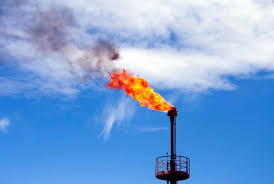
Oil and gas companies will have to control and monitor emissions from fracking and meet tighter emission-performance standards on the electric motors used at drill sites, under some first-in-the-nation rules passed Wednesday night by Colorado air quality regulators.
The Colorado Sun reported the new rules for the so-called pre-production phase of drilling are in addition to regulations the state’s Air Quality Control Commission (AQCC) last year issued to reduce emissions from oil and gas storage tanks, pipelines and low-producing wells.
Developed after extensive negotiations between the state Air Pollution Control Division and stakeholders, including industry and environmental groups, the regulations are part of an ongoing effort by the commission to tighten controls on oil and gas operations, a major source for ozone and greenhouse gas emissions.
For the most part, the rules drew praise from industry and local government although some reservations were expressed by environmental groups.
“We are grateful to Air Quality Control Commission staff for presenting largely feasible, practical improvements to Colorado’s air regulations, and to the Commission for ultimately adopting them as proposed.,” Lynn Granger, executive director of API-Colorado, a trade group, said in a statement.
Clear Creek County Commissioner George Marlin said in a statement that the AQCC action will mean that “local communities across Colorado’s West Slope and Front Range will be better protected from dangerous air pollution and from climate change.”
Marlin is also vice president of Colorado Communities for Climate Action, a coalition of 34 local governments across the state pushing for stronger state and federal climate policy.
The AQCC did not, however, adopt revisions urged by environmental and community groups, such as mandating uniform air emissions testing protocols and requiring, when feasible, only electric motors at drill sites.
“We continue to feel that giving more time for the division to develop a more fully baked rule would be more beneficial, but are willing to give this initial rule a chance,” Jeremy Nichols, climate and energy director for WildEarth Guardians, an environmental group, said in an email.
Among the changes the commission did make was to add language to ensure local governments could be involved in the review process for drilling monitoring plans and that local governments would have access to the monitoring data.
The AQCC also directed the state Air Pollution Control Division to look into and report back on several issues raised by the environmental and community groups.
Source: Colorado Sun





